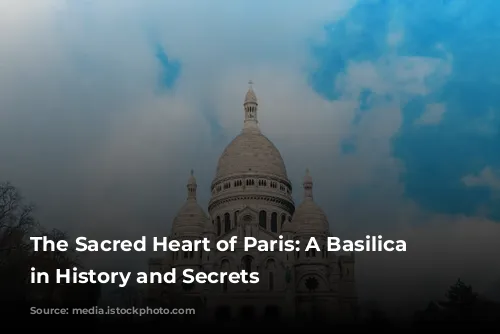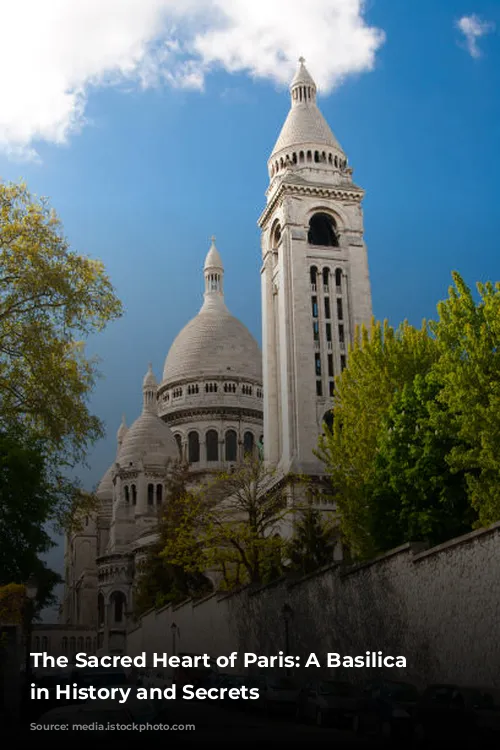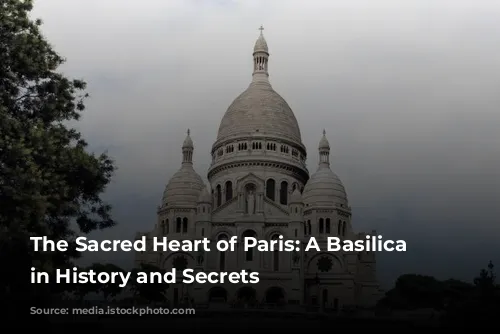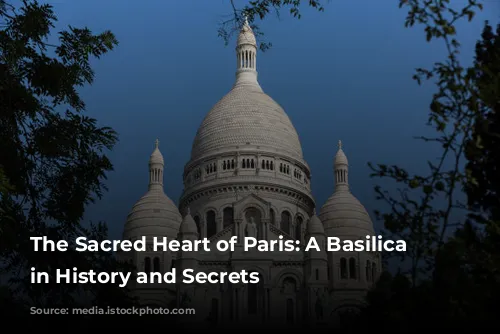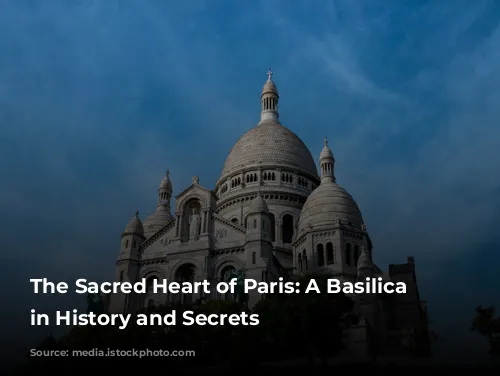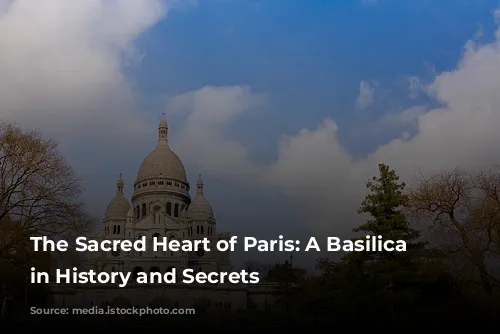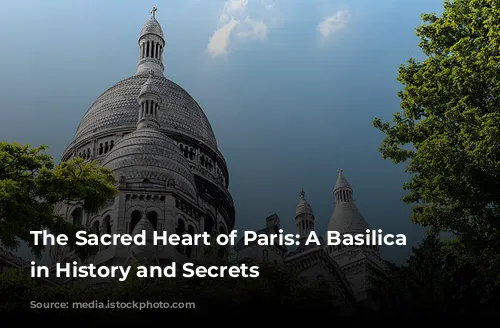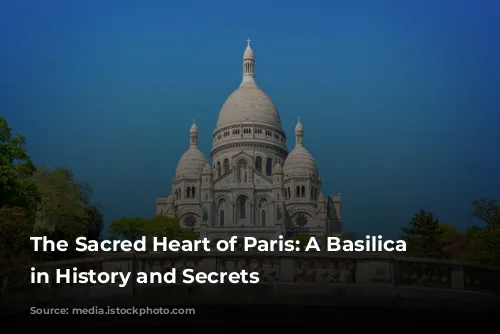The Sacré-Cœur basilica, a Parisian landmark, beckons over 11.5 million visitors annually, eager to explore its history and spirituality. This makes it the second most visited religious monument in the French capital, trailing only the renowned Notre Dame Cathedral. Perched atop the Montmartre hill, 130 meters above the city, it offers breathtaking panoramic views. But beyond its iconic facade lies a treasure trove of secrets waiting to be uncovered.
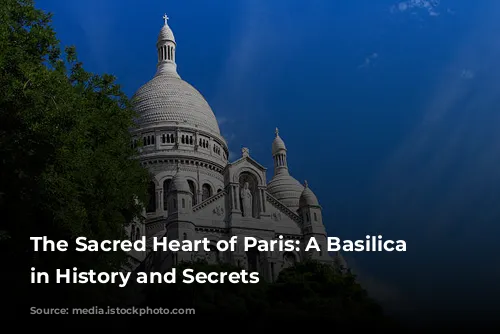
A Basilica Enmeshed in Controversy
The Sacré-Cœur’s journey has been marked by controversy right from the start, even before the first stone was laid in 1875. Its location, on the very hill where thousands of Parisians were brutally massacred during the bloody “Semaine Sanglante” of 1871, sparked heated debate. In 1873, when the basilica’s construction was under discussion, accusations flew that it was meant to atone for the sins of the Communards, those who fought against the French government during the Paris Commune. More recently, in 2020, the Minister of Culture’s intention to classify the basilica as a historical monument stirred further controversy among historians.
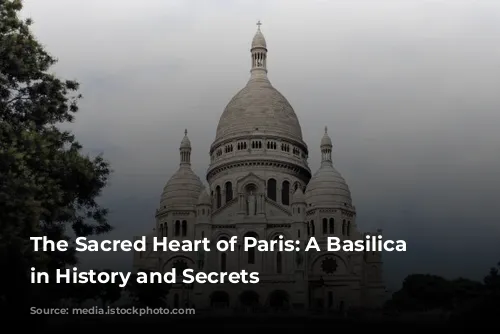
A Tale of Architects and Delays
Paul Abadie, the architect chosen to design the basilica in 1873, was driven by ambition and a desire to leave his mark. However, his untimely death in 1884 brought about a succession of architects who, in their quest for excellence, introduced changes that led to delays and soaring costs. Honoré Daumet, Abadie’s successor, made drastic alterations that sparked conflicts with the construction committee, ultimately leading to his departure in 1886. His successors, Charles Laisné and Henri-Pierre Rauline, faced their own challenges, with Laisné succumbing to death in 1891. Lucien Magne, who took over the reins from 1904 to 1916, finally led the project toward completion, culminating in its consecration in 1919 under the direction of Louis-Jean Hulot.
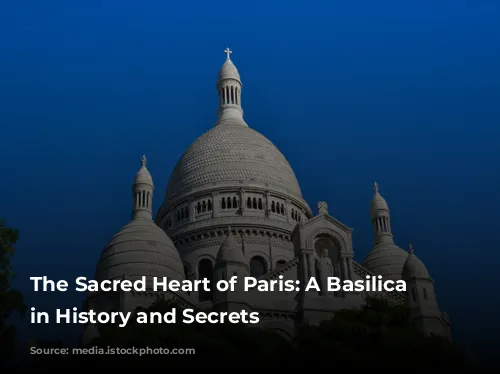
The Secret of the Basilica’s Brilliance
Have you ever wondered why the Sacré-Cœur shines so brightly? The secret lies in its unique construction material – Château Landon stone. This special limestone possesses a remarkable self-cleaning property. As rainwater washes over it, the stone releases calcium oxide, creating a whitening effect. It’s this self-cleaning ability that keeps the Sacré-Cœur sparkling white. Paris boasts only a few other structures built with the same material, including the Arc de Triomphe, the Sorbonne, and the Carmel of Montmartre.
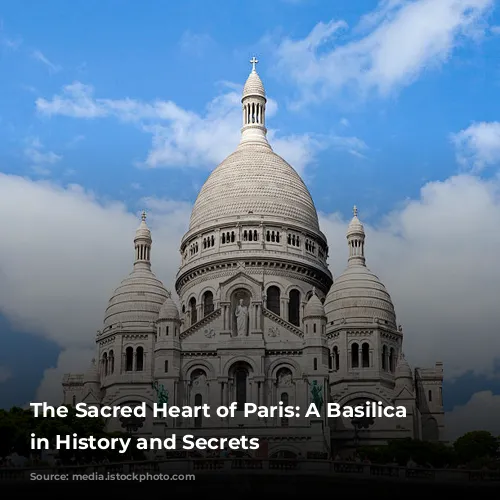
A Mosaic of History and Art
The Sacré-Cœur houses the largest mosaic in France, a breathtaking masterpiece that spans 475 square meters. This artistic wonder, created between 1921 and 1923 by the Guilbert-Martin workshop in Saint-Denis, adorns the ceiling of the apse. Depicting the resurrected Christ, it also features intricate details of historical figures, including the Virgin Mary, Saint Michael, and Saint Joan of Arc. Take your time to appreciate the mosaic’s rich tapestry of history and symbolism.
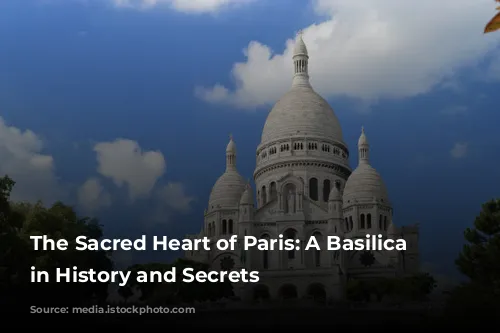
A Symphony of Sound
The Sacré-Cœur’s bell, known as “La Savoyarde,” is the largest in all of France, towering over 3 meters tall and boasting a circumference of 19 meters. This impressive bell, a gift from the four dioceses of Savoy, was crafted in Annecy-le-Vieux by the Paccard workshops. Installed atop the basilica’s campanile in 1895, it took a team of 28 horses to hoist the 10-ton behemoth up the hill. The bell’s resonance adds a powerful and spiritual dimension to the Sacré-Cœur experience.
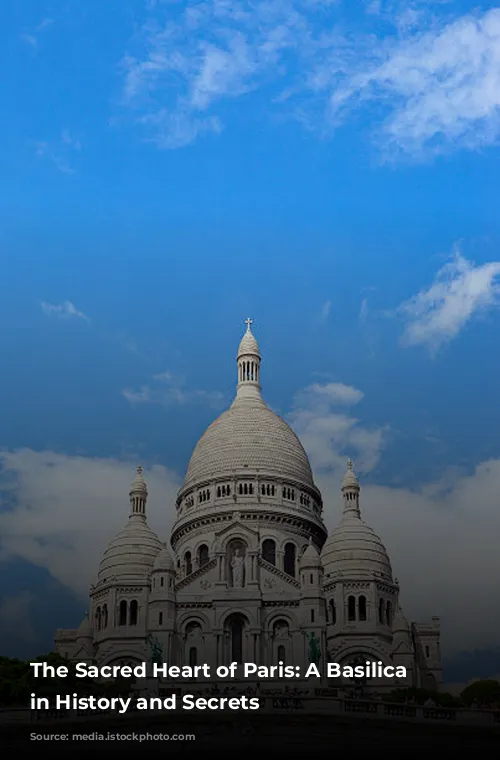
A Journey Through Time
Are you ready to embark on a journey through history and spirituality? The Sacré-Cœur and its surroundings offer a captivating exploration of Parisian heritage and faith. From its controversial origins to its stunning mosaics and colossal bell, the basilica stands as a testament to human ambition, artistic expression, and unwavering devotion. Don’t miss the chance to discover the secrets and wonders hidden within this iconic monument.
